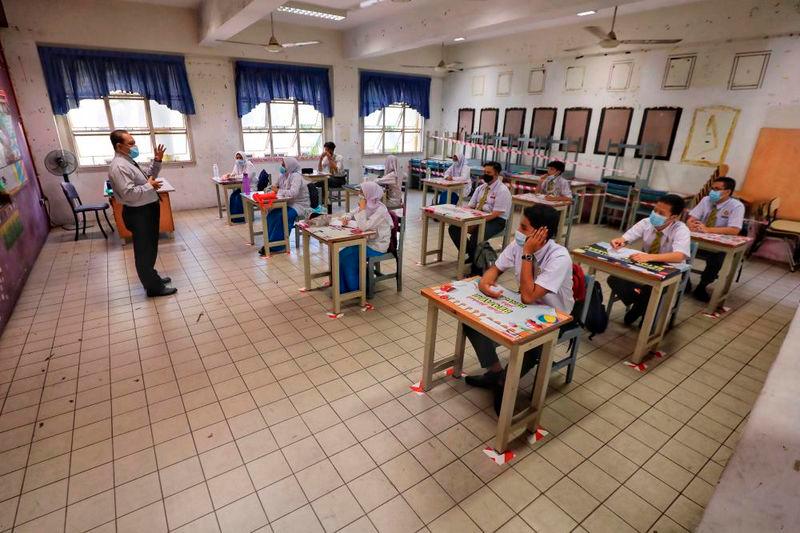THE Malaysian education system has undergone many changes since independence from the British in 1957. It was designed to unify what was described as an otherwise fragmented population and create a single Malaysian identity through assimilation.
Malaysia has been pushing to build a more knowledge-based economy rooted in creativity and innovation for years now.
This analysis explores Malaysia’s journey into broad-based reforms, its role in nurturing innovation and creativity through assessing some key initiatives reflecting the above followed by cases whereby Malaysians have been performing well.
Unity was also one of the main purposes of education after independence. Following 1956, the Razak Report laid out the foundation for national education.
However, rote learning was predominant in the system; it felt more mechanised and did little to encourage critical thinking or creativity.
Beginning in the late 20th and early 21st centuries, there was a strong push for innovation and creativity. To compete in the globalised world, the government started restructuring the education sector.
The vision was to transform Malaysia into a developed country by the year 2020. One of the key enablers was education, which paved the way for this vision to become a reality.
The government first introduced the Smart School programme in 1997, aiming to enhance teaching and learning through increased use of technology and to foster a culture of innovation among students.
This initiative employed Information and Communication Technologies (ICT) to support curriculum delivery in schools, thereby engaging children with their learning more interactively.
The basis for improvement in national education was identified through strategies as outlined in its 2006-2010 National Education Blueprint.
This blueprint focused on fostering higher-order thinking, particularly in critical and creative areas, rather than relying on rote learning.
The plan introduced new science and technology classes that incorporate project-based learning to help students learn by doing, think creatively, collaborate with peers in finding solutions to real-life challenges.
Malaysia places a major focus on innovation through higher education, establishing research universities such as University Malaya and Universiti Teknologi Malaysia. These institutions serve as catalysts for today’s research culture.
The government has pledged to highlight STEM (Science, Technology, Engineering, and Mathematics) education to support and encourage a new generation of innovators. Programmes such as STEM aim to elicit interest and proficiency in students. In schools, STEM labs are installed, and regular training is provided to staff on integrating more interactive and inquiry-based learning.
The Maker Movement, a push for a more DIY-style of learning that promotes personal expression through building and tinkering, is also being embraced in Malaysian schools.
Labs are being set up for students to create, experiment, and innovate. These initiatives provide students with avenues to creatively engage, facilitated by partnerships between state governments and industry players making such opportunities available.
Additionally, there has been a growing emphasis on entrepreneurship education in Malaysia, with classes and programmes at every level, teaching students how to create opportunities rather than simply expecting them from others.
The Education Ministry has teamed up with outfits such as the Malaysian Global Innovation and Creativity Centre, to infuse an entrepreneurial spirit in students. These steps are necessary in forming an autonomous and proven creative class, less dependent on traditional employment opportunities.
The government is intensifying efforts with more innovative ideas to enhance the education system for the future.
One of the latest projects is the implementation of a Dual Language Programme (DLP) for Science and Mathematics in English.
This initiative has increased the reliance on digital foreign language training for English-learning students and promoted the widespread use of non-English science textbooks, which are predominantly in English.
DLP tempered by critical and analytical ability ultimately enhances cognitive agility and innovation as students are exposed to ideas that foster sophistication asynchronously.
In a more recent initiative, the Malaysia Digital Economy Corporation (Mdec) has begun collaborating with higher learning institutions to integrate digital skills into their syllabus.
Mdec-funded initiatives, such as the Digital Maker Movement, have sparked young minds to delve into coding, explore robotics and engage in digital fabrication.
As part of this effort, starting from an early age, including preschool, the government has ensured that all students have access to designer spaces and digital labs, fostering comfort with technology tools and fostering innovation from a young age.
In addition, the government has emphasised the development of higher-order thinking skills as a top priority, promoting the cultivation of the HOTS (Higher Order Thinking Skills) Initiative.
This programme evidentially alters the instruction methodology used by teachers, encouraging students not only to memorise but also to delve deeper into analysing, evaluating and creating.
HOTS is also incorporated into the national curriculum, and teachers are trained to set higher-order thinking lessons to help students think critically and solve problems creatively.
Simultaneously, the government has set in motion an innovative-based 21st Century Learning or PAK21 initiative – aimed at cultivating a holistic environment for education and knowledge transfer, where collaborative learning emphasises on teamwork, communication as well as creativity.
This will involve reshaping the nature of classrooms to be designed for greater collaboration and project-based work on real world problems, demanding creativity.
Offering government-funded professional development options for teachers has been a significant area of investment, with initiatives such as the School Improvement Specialist Coaches programme delivering training and support to educators nationwide.
This scheme equips teachers with novel teaching methods that integrate creativity into their classrooms.
In summary, the evolution of the Malaysian education system serves as a comprehensive example of efforts to adapt traditional practices to meet contemporary global demands.
Malaysia has made significant strides in fostering innovation and creativity among its students through various reforms and initiatives.
Despite the hurdles to overcome, Malaysia has remained steadfast and increasingly committed.
It is well-focused and strategically positioned to achieve its vision of becoming a knowledge-based, innovation-driven economy through targeted investments in key areas.
The writer is the head of the MBA Programme at the Faculty of Business at BERJAYA University College. Comments: letters@thesundaily.com









